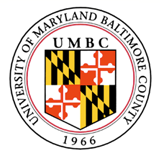Evaluation, Integration and Institutionalization of Initiatives to Enhance STEM Student Success
PROJECT OVERVIEW:
The University of Maryland Baltimore County (UMBC) Innovation through Institutional Integration (I-3) educational research project investigates the efficacies and efficiencies of four intervention techniques used at UMBC. These techniques are designed to increase and enhance the graduation and retention rates, and more broadly the educational experiences, of all students in the STEM disciplines particularly those from underrepresented groups. In this project, UMBC conducts a randomized control trial comparing various combinations of interventions to obtain rigorous empirical estimates of their impacts on student success, as well as their cost-effectiveness. The four interventions studied are: 1) Community-based study groups; 2) Pro-active mentoring and ongoing retention risk assessment by high-status faculty; 3) Pro-active mentoring and ongoing retention risk assessment by staff members; and 4) Freshman active learning experience in CASTLE (the College of Natural and Mathematical Sciences -CNMS- Active Science Teaching and Learning Environment. In addition to carrying out extensive analyses to identify treatment effects, this project compares the cost-effectiveness of the various interventions in order to identify the techniques that have both high impact and low net costs. The cost-effectiveness analysis will be used to guide policy makers in deciding how to best allocate resources to achieve specific ends. To analyze cost-effectiveness, UMBC collects three types of costs for each intervention: direct, indirect, and administrative costs. Ultimately, this work investigates the assumption that an essential approach for expanding participation and increasing retention/graduation rates is to identify the components of successful interventions that have the greatest impact at the lowest cost.
This project partners senior administrators, department chairs, faculty, professional advisors and project principal investigators to enhance the success of intervention techniques and their likelihood of being institutionalized beyond the funding period. It incorporates leading theory-based intervention components and state-of-the-art evaluation techniques to substantially advance knowledge regarding interventions that enhance student achievement in the STEM disciplines. The integration of the identified cost-effective techniques across extant programs will enable UMBC to make the best use of scarce resources, increase and diversify STEM graduates, and provide a framework for institutionalization of UMBC programs.
Dates:
Start: October 01, 2010End: September 30, 2015


